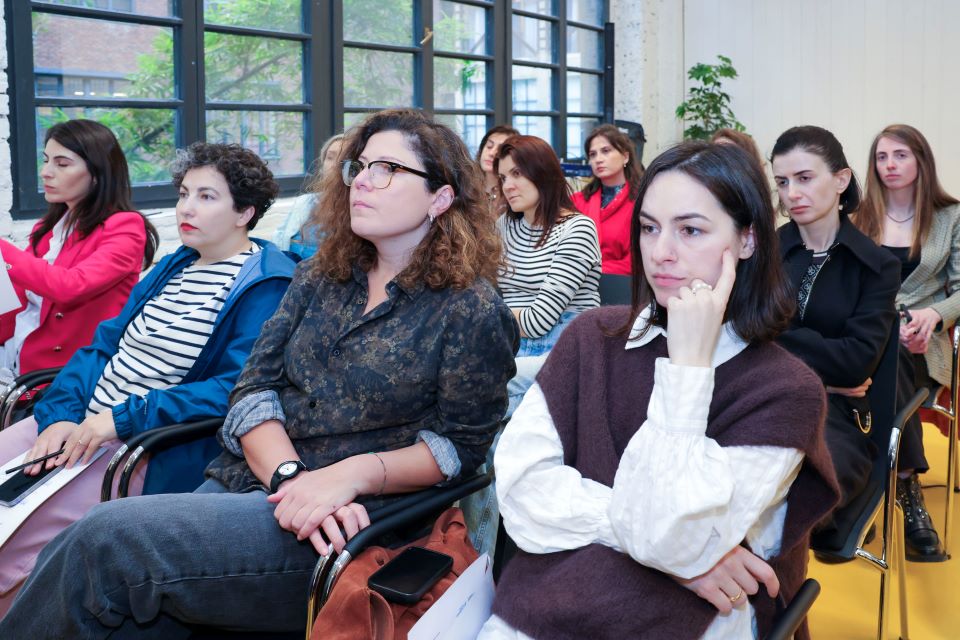Private sector learns about the latest research on gender equality
Date:

The effectiveness of steps taken in the field of gender equality and women’s empowerment increases significantly when they are based on data-driven strategies. At the same time, it is important to introduce such complex approaches that consider the involvement of all sectors, including business, in the formation of an equal and inclusive society.
Part of the partnership between UN Women and the private sector in Georgia involves becoming familiar with the latest research on gender equality, analysing it together with business representatives and discussing appropriate steps. It is noteworthy that the results of UN Women’s research have repeatedly motivated the private sector to implement valuable initiatives.
This goal was also served by a meeting that UN Women held on 10 April with about 50 representatives of companies that are signatories to the United Nations Women’s Empowerment Principles (WEPs). At the event, business professionals specializing in human resources management, public relations and corporate social responsibility were introduced to the results of a 2024 survey on attitudes towards gender equality in Georgia. Particular attention was paid to issues related to the distribution of unpaid care work, gender stereotypes in terms of women’s employment and barriers to women’s career development.
According to the results of the public opinion survey, 42 per cent of the Georgian population believes that a man’s main job is to be the primary income earner in his family and that a woman’s task is to take care of the family, while 71 per cent think that women should work less than men and devote more time to their family. In addition, gender stereotypes related to professions are still widespread: Every other person thinks that women are better suited for secretarial work, service jobs and similar fields, while 75 per cent believe that women cannot take on certain professions.
In parallel with the presentation of these results, it was noted at the meeting that the private sector, which is the largest employer in Georgia, can make a significant contribution to changing the current reality. Among the likely effective steps that can be taken include the introduction of positive practices like parental leave and flexible work schedules, the encouragement of a healthy work-life balance and the promotion of women’s employment in male-dominated sectors.
During the meeting, Nanuka Alavidze, Public Relations Manager for the security and protection company Algani, noted that understanding attitudes towards gender equality is particularly relevant for her field of activity, as working in the security and protection sector is still associated with many stereotypes for women.
“Gender equality directly impacts employment growth and women’s participation in the sector,” Nanuka added, “so it is extremely important to have this information on concrete data and trends. Such meetings allow us to more thoughtfully plan new approaches to promoting gender equality in the security and defence sector, and to consider how we can make company policies and work environments more inclusive.”
At the end of the meeting, private sector representatives were introduced to UN Women’s Share the Care campaign, which aims to raise awareness about the uneven distribution of unpaid care work.
The 2024 Gender Equality Attitudes Study (GEAS) in Georgia was conducted with the support of the Swiss Agency for Development and Cooperation (SDC). The meeting with the private sector was part of the UN Women Regional Office for Europe and Central Asia regional programme “Women’s Increased Leadership for Resilient and Peaceful Societies”, funded by the Government of Denmark.